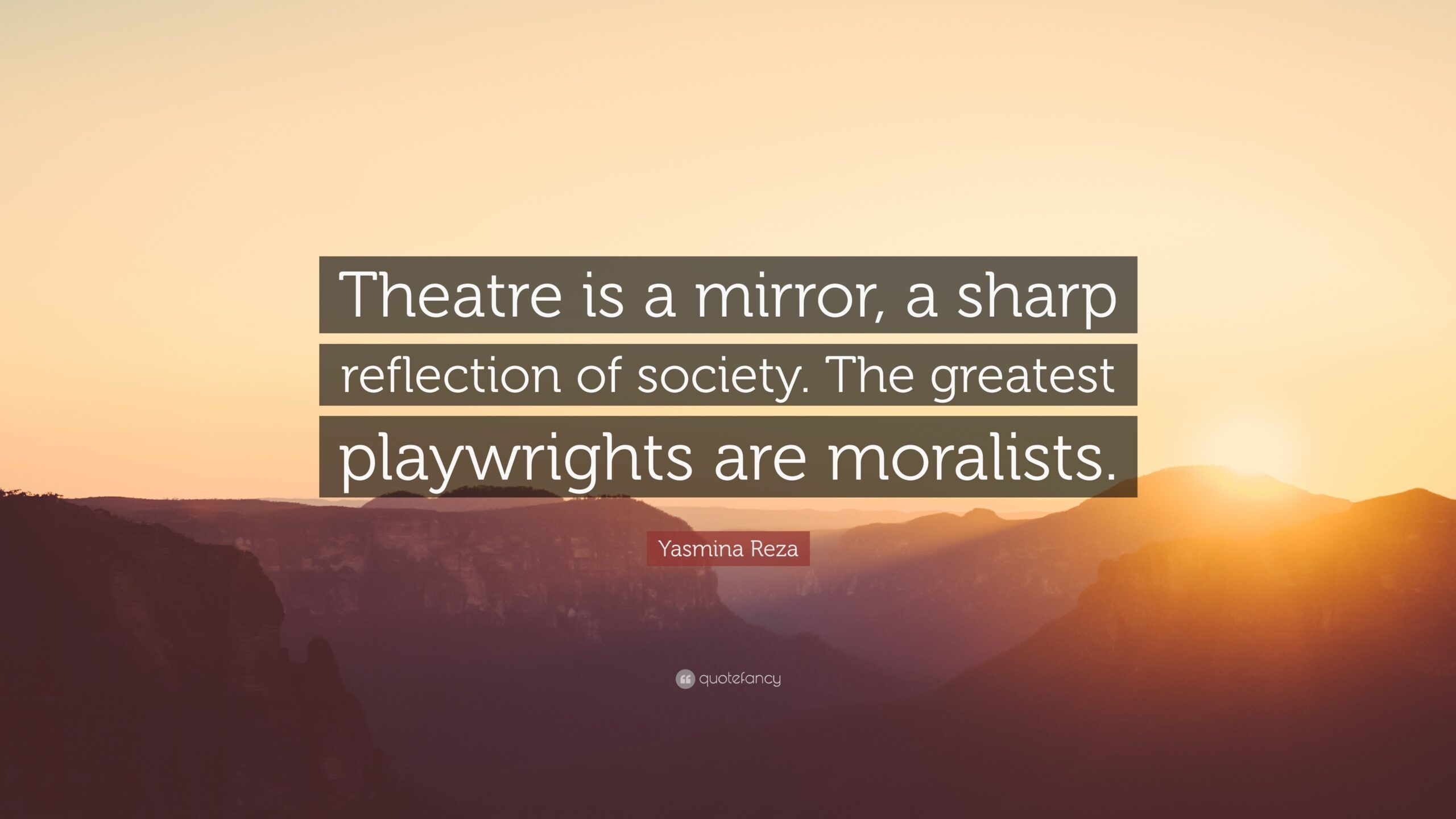The notion of media serving as a reflection of society is an integral aspect of understanding contemporary human interactions and cultural dynamics. Within the Bahá’í Framework, this relationship warrants exploration not only as a mirror reflecting the surface level of societal behaviors and norms but as a prism through which the deeper layers of communal identity, values, and aspirations can be discerned. The media, in its myriad forms, serves not only to report on events but also to influence public perception and shape collective consciousness in profound ways.
Historically, every epoch has seen the rise of various media outlets, from the printing press to contemporary digital platforms. Each of these modalities has heralded significant societal shifts. In the Bahá’í view, they provide invaluable opportunities for promoting unity, justice, and the intrinsic properties of humanity. However, the media often bears witness to societal failings, such as prejudice, discord, and inequality, revealing the darker aspects of human existence that require scrutiny and thoughtful rectification. Such observations beg the question: how does the news media act as both mirror and mold for society?
The transformative power of the news media can be dissected through several thematic lenses. Firstly, the concept of representation is critical. Reflective of diverse societal segments including race, gender, and socioeconomic status, the manner in which individuals and communities are portrayed in the media can either reinforce stereotypes or challenge normative biases. This holds profound implications for the pursuit of equity and justice, pivotal themes in Bahá’í teachings. When marginalized voices are amplified, societal understanding broadens, fostering inclusiveness that transcends superficial differences.
Moreover, the news media’s construction of reality often hinges upon the narratives it chooses to propagate. By curating content, editors and journalists wield considerable influence over public discourse. In instances where sensationalism prevails over accuracy, the media perpetuates misconceptions and misinformed beliefs. The ability to discern truth amidst a cacophony of information is an essential skill for audiences, echoing the Bahá’í principle of the independent investigation of truth. This principle promotes the notion that individuals must critically evaluate information rather than accept it blindly, thus developing a more nuanced understanding of the world.
In addition, the frequency and nature of media coverage reveal societal priorities and values. Certain issues receive disproportionate attention, often because they resonate with prevailing fears or interests. The focus on violence, crime, and scandal tends to overshadow positive developments and humanitarian initiatives. This skewed portrayal can engender a collective mindset that views society through a lens of skepticism and distrust. Conversely, when media channels highlight narratives of resilience, compassion, and collaboration, they cultivate a more hopeful vision of humanity’s potential. The Bahá’í teachings emphasize the importance of recognizing and fostering the virtues inherent in all people, a call to focus on constructive narratives rather than destructive ones.
Another significant component pertains to the societal implications of misinformation. In an age characterized by rapid information dissemination, the distinction between veracity and falsehood becomes increasingly obscured. Misinformation acts as a corrosive agent, engendering divisions among communities and perpetuating social strife. The Bahá’í commitment to truthfulness serves as a remedial countermeasure against the detrimental effects of erroneous information. By promoting transparency and accountability, societies can counteract the negative dimensions of media narratives while reinforcing a culture grounded in integrity and authenticity.
Furthermore, the global nature of modern news media highlights the interconnectedness of humanity—a crucial tenet of Bahá’í philosophy. As news traverses borders, it cultivates a sense of shared responsibility toward addressing global challenges such as climate change, poverty, and inequalities. The media thus serves as a conduit for fostering international solidarity and understanding. This interconnectedness urges individuals to transcend parochial constraints, aligning with the Bahá’í vision of a unified world where diversity is celebrated rather than vilified.
It is imperative to reflect critically upon the role of the news media within the broader tapestry of society. Indeed, the Bahá’í imperative underscores the importance of engaging with media ecosystems actively rather than passively consuming them. Such engagement invites communal discourse, fostering environments where critical thinking and constructive dialogue flourish. Within this disquisition, the Báhá’í concept of consultation emerges as an essential mechanism for addressing media-related dilemmas. By gathering perspectives and collaboratively exploring potential solutions, society can holistically navigate challenges posed by media representations and narratives.
In conclusion, the news media operates as a complex mirror reflecting the multifaceted nature of society. By examining the interplay of representation, narrative construction, the implications of misinformation, and the global interconnectedness fostered by media, one can appreciate the intricate relationship between societal values and media output. The Bahá’í teachings encourage a conscious and proactive approach to media consumption, urging individuals to seek truth, foster understanding, and cultivate unity. As our world becomes increasingly interdependent, the imperative to recognize the media’s role as both a reflection and influencer of societal norms becomes ever more critical. Through this lens, the pursuit of a more equitable, just, and compassionate society aligns profoundly with the principles espoused in Bahá’í discourse, ultimately guiding communities toward a shared destiny rooted in the recognition of shared humanity.
